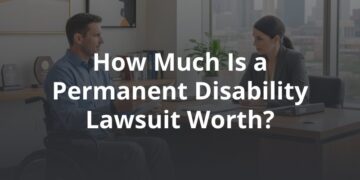Hurricane Harvey has caused massive flooding and damage in Texas. Amidst the deluge, a narrative has emerged recommending residents affected by flooding to get their insurance claims for property damage filed by Friday September 1, 2017. The basis of this story revolves around Texas House Bill 1774 passed during the recent Texas legislative session. The law goes into effect on September 1, 2017, and if affected parties file claims for property damage before that date it will be under current state law. What is the change that is prompting the recommendation?
According to the Texas Bar Association:
“House Bill 1774, passed by the 85th Texas Legislature, will change the law regarding how legal actions for certain insurance claims are handled, including some claims for property damages or losses caused by natural disasters. If you need to make an insurance claim related to Hurricane Harvey, you should study how the law may affect you. Claims made before September 1, 2017, will be subject to current law; those filed on or after September 1 will fall under the new law.”
House Bill 1774 seeks to reduce frivolous lawsuits against insurance companies. A portion of the law reduces the penalty interest rate insurance companies would pay for late payments in the case of a lawsuit filed by the policyholder. Under current law, the penalty is 18 percent of the claim. If you file after Friday, the rate is determined by a market-based formula that is capped at 20 percent. The current rate under the new law’s market-based formula is approximately 10 percent. It is this potential difference in payment penalties prompting the recommendation. The narrative is if you file before September 1st 2017 you will be under the fixed 18 percent rate, and if you file after September 1st 2017 you are subject to the variable market-based rate in the new law.
Some worry the massive costs of the damage caused by Hurricane Harvey could prompt insurance companies to systematically underpay claims as a way to save money. Underpayment could translate into more lawsuits than normal as policyholders seek legal recourse. Under the new law, if policyholders win their lawsuits the at-fault insurance company would pay the new market-based formula which might be below the old 18 percent rate. This means less potential money for policyholders affected by the storm.
However, this change only effects policyholders who file a lawsuit against an insurance company. The normal insurance claims process is unchanged. Most Texans filing claims will resolve their claims without needing to file a lawsuit. There is no need to worry that you must file a claim before Friday September 1st, 2017 to receive compensation for lost and damaged property from the hurricane. According to Texans for Lawsuit Reform, “nothing in the new law passed by the legislature earlier this year requires that the initial insurance claim be made in writing or by a specific date.” Another reason not to worry is most claims or lawsuits resulting from Harvey will be for flood damage. Most of these claims will be under the federal flood insurance program governed by federal law. Meaning the new Texas law will not apply. The concern about the new Texas law is very narrow and unlikely to affect most Texas residents affected by the flood.
References
- New Texas law means Harvey victims have good reason to file claims by Friday
- Texas Senate sends bill to governor discouraging weather-related lawsuits
- Lawyers urge Texas homeowners to file Harvey claims before law change
- Here’s Why You Should File a Hurricane Harvey Insurance Claim Before Friday
- Statement Regarding Hurricane Harvey and HB 1774








